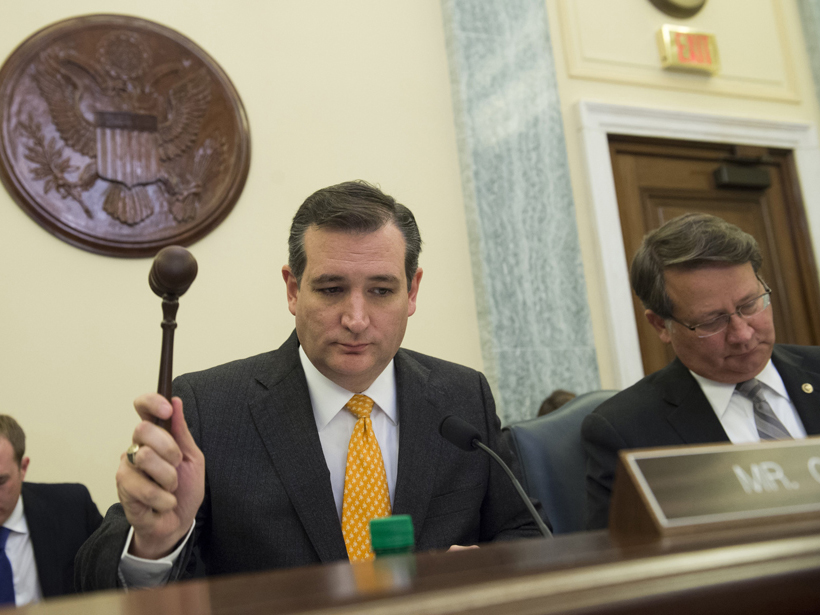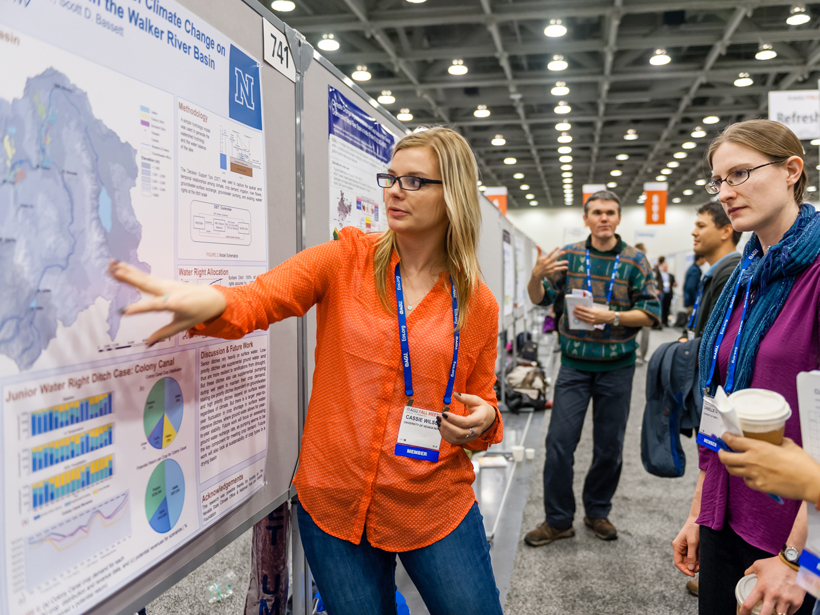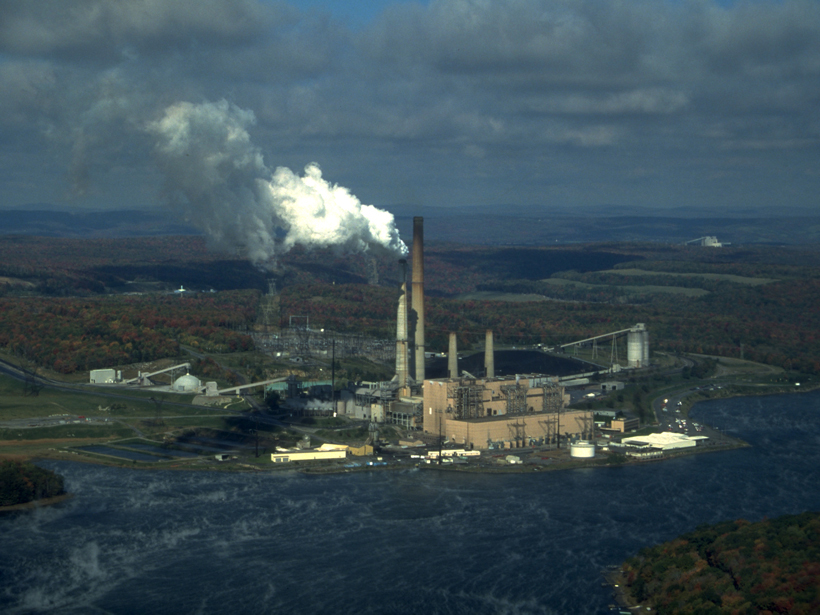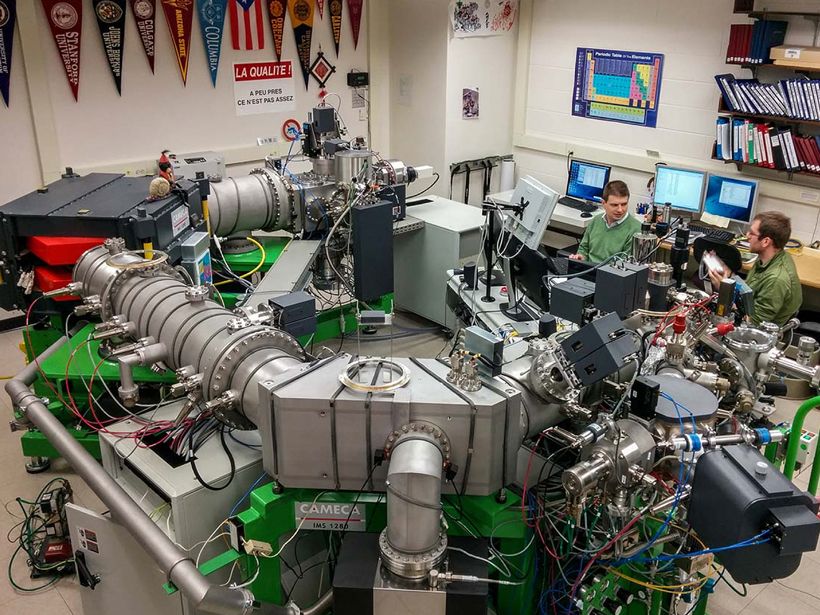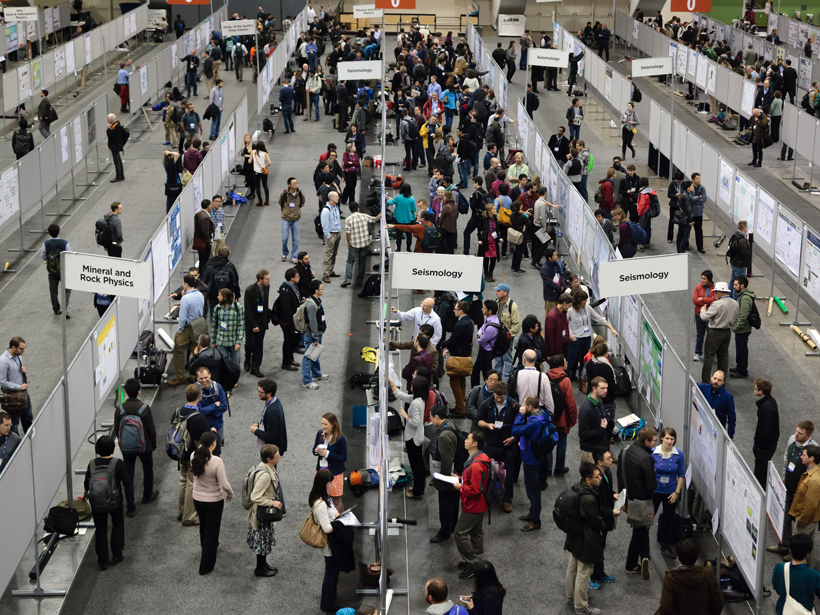Republican-invited witnesses reject consensus view of climate change, charge bias in federal funding. Democratic senators decry attempt to stir controversy about well-established climate findings.
Authors who want CC-BY-NC 2015
Effectively Evaluate Scientific Posters
In poster sessions, students and scientists convey research to an audience walking through a busy hall. To reach that audience, posters should be eye-catching, to the point, and easy to understand.
Despite Stalled Regulations, U.S. Mercury Emissions Decline
Newly published measurements made downwind of West Virginia, Pennsylvania, and Ohio coal-burning plants reveal steep, unexpected drops in atmospheric mercury concentrations since 2006.
Ships Bring More Than Cargo to Arctic Waters
A probe of ballast water in ships at an Arctic port finds hitchhiking organisms that polar warming could allow to invade the region's ecosystems in less than 40 years.
High-Resolution Tools Advance Study of Paleoclimate Archives
HiRes2015: High Resolution Proxies of Paleoclimate; Madison, Wisconsin, 31 May to 3 June 2015
Laser Beams Brighten Prospects for Cave Science
Armed with laser technology, scientists now plot and study vivid maps of underground spaces with stunning accuracy. But the equipment is costly, fragile, and hard to maneuver through tight passages.
Model of Solar Cycle's Impact on Climate Gets Upgrade
A new model of how the Sun's 11-year cycle affects climate leads to slight changes in model results on atmospheric chemistry, but temperature and wind results are consistent with the previous model.
Paris Climate Talks Could Spur Energy Sector Action
A robust climate pact from the United Nations meeting in Paris could urge nations and energy investors toward lower-emissions energy generation, the head of a global energy agency suggests.
Tackling the Poster Hall
Here are some tips for going to a poster session, from knowing where to start to connecting with presenters—even if they're nowhere to be seen.
The Importance of Data Set Provenance for Science
Data do not exist in a vacuum. To be useful, data must be accompanied by context on how they are captured, processed, analyzed, and validated and other information that enables interpretation and use.

